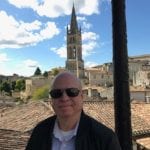Forbidden Pleasures, Cuban Treasures
If your main desire to go on a Cuba vacation is for the rum and cigars, you are missing the larger picture.
If you are going to Cuba to experience a society on the verge of profound change, you are choosing correctly. As a serious traveler, you cannot separate the Cuba of today from its recent history.
Their truly unique recipe was the Batista dictatorship of the 1950’s which was very friendly to the United States. Some became very prosperous, but most Cubans saw corruption and greed.
The revolution in early 1959 changed the dynamic and the new leaders went another direction. US lawmakers responded with a travel and trade embargo that has lasted in one form or another for over 50 years. You still see once impressive mansions and homes in Havana that housed one family.
Today most buildings are crumbling and multiple families live in them.
The US embargo effected as well multi-national companies who could not do business with the US and Cuba at the same time.
The result has been a country frozen in time. Importation of goods from the US and most other Western countries was prohibited or severely restricted. Cubans became resourceful at recycling and reusing most everything from the hundreds of 1950’s cars to scrap metal and discarded building materials.
The average Cuban has a ration card for basic food each month. There are no Home Depots or Costco’s.
My recent 5-day trip was exclusively to Havana. It was one of the most enjoyable and satisfying trips I have ever taken. To see Havana now at this juncture was a dream come true for me.
The five on the tour were split between two hotels, The Saratoga and the Telegrafo. The hotels were ok, but not international 5-star quality. There is no such thing yet in Havana. Both hotels were in Old Havana and well located for touring and self exploring.
In the next several days we did the type of licensed “people to people” plan that fits the current US regulations for US citizens visiting Cuba:
Old Havana, with its four main squares, The Hemingway former residence and tower, Central Havana, The Plaza of the Revolucion and, of course, the famous Malecon along the seawall. There were some areas of the spread out city that looked like Southern California, others abandoned and neglected. There was a full range of contrasts.
Art is everywhere, with makeshift projects and art objects dotting the neighborhoods such as Callejon de Hamel and Fusterland. Here local artists have recaptured and enhanced art projects at their own expense. An abandoned water tank has become a makeshift art gallery for local art students. An old grill from the front of a car is now a large eagle sculpture.
Live music is everywhere as well, with an opera singer in a church, in local bars and restaurants, and even at the hotel for breakfast in the mornings.
One memorable evening was spent at the iconic 1930’s Hotel National listening to the Buena Vista Social Club and sipping 12-year-old Cuban rum. The hotel is stuck in time. Nevertheless, there is so much to impress with a strong Cuban spirit, culture and passion.
In Cuba there were always surprises. The Christopher Columbus Cemetery impressed much more than the famed Recoleta Cemetery in Buenos Aires. The Cuban version impressed for the spaciousness of the displays and the attention to detail. Marble brought from Italy, along with artisans, made some of these crypts more expensive than the aging houses around them.
At the moment, US credit cards are almost universally unusable in Cuba, as are US cellphones. There is internet occasionally. Forget ATM’s and foreign travelers must use CUC’s which are taken about everywhere. Most Cubans use a different currency. There is aso no GPS as such. In the Cuba of today, it is very difficult to find specific areas out of the city center unless you speak Spanish.
Ignore these at your own risk. Nevertheless, the more severe isolation of Cuba by the US will come to an end.What this will mean for the future of Cuba and its unique culture and spirit is hard to say. I am very glad I was able to see it now before the changes come. Serious travelers be warned.



